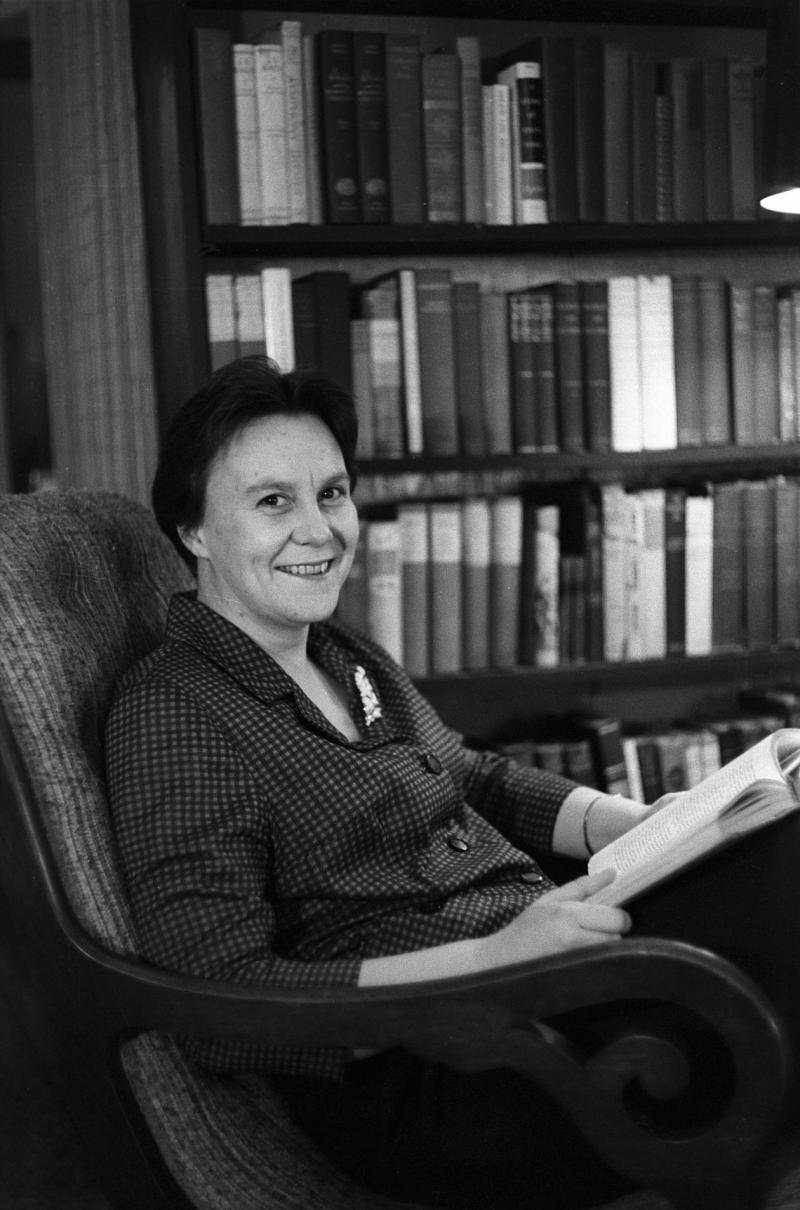The Trouble With Words We’ve Read but Not Heard
By: By Casey Cep



On Oct. 16, at a political rally in Macon, Ga., Sen. David Perdue invoked the name of his colleague, Sen. Kamala Harris. “Ka-ma-la, Ka-ma-la, Kamala-mala-mala,” Mr. Perdue said, before finally giving up: “I don’t know, whatever.”
It wasn’t the first time someone mispronounced the Democratic vice-presidential candidate’s first name. So common is the experience that in her autobiography, “The Truths We Hold: An American Journey,” Ms. Harris offered a helpful explanation: “My name is pronounced ‘comma-la,’ like the punctuation mark.” Critics alleged, though, that Mr. Perdue’s mispronunciations were intentional, and many other Indian Americans shared their own experiences of being taunted or teased because of their names.
For every malicious mispronunciation, though, there are a thousand innocent ones, many of them far more embarrassing for their perpetrator than for any potential victim. For me, it was “epitome.” For the critic Susan Sontag, it was the French novelist whose name she thought was pronounced “Prowst.” For “Hillbilly Elegy” author J.D. Vance, it was “Sauvignon Blanc” on a wine list, forcing him to retreat to Chardonnay. We have all been confronted by a word we know, by sight or by meaning, but struggle to say aloud.
Some of these are more awkward than others. Going “awry” by making it rhyme with Bowery is less likely to humiliate you than talking about the “annals” of anything, but this sort of “fox pass” can happen to anyone—especially when we are young, and especially if our reading comprehension exceeds our spoken vocabulary.
I came across a delightful account of this predicament during my research into the life of the novelist Harper Lee. Lee loved doggerel and nonsense poetry—not only reading and reciting it but also writing it. One of my favorite examples, a reflection on what it was like to move from the Deep South to New York City at the age of 23, was sent by Lee to a friend of hers under the fantastically farcical title “Some Sociological Aspects of Peculiarities of Pronunciation Found in Persons From Alabama Who Read a Great Deal to Themselves.”
Lee was born and raised in a small town in Monroe County, Ala., and her accent was so strong that she joked about being afraid of consonants. In “Some Sociological Aspects,” she explains that her speech patterns were the result of her mother’s boarding school years in Mobile, combined with her Florida-reared father’s Alabama education.
In addition to Lee’s Southern drawl, her bookish childhood left her knowing many more words than she had ever heard spoken, so she often stumbled over their pronunciations. Not knowing any better, she rhymed the end of “coup d’état” with “drat.” Names could be trip wires, and Lee joked that all public figures should be forced to offer pronunciation guides to spare the rest of us embarrassment. She herself chose to publish under her middle name because her first name, Nelle, was so often mispronounced as “Nellie.” There was also the problem of regional variations: The correct way to say “Lafayette” depended on whether you meant the Marquis de or the city in Walker County, Ga., where the accent falls on the “fay.” Ditto “Arab,” which Harper Lee knew you said one way if you meant someone who speaks Arabic and another if you meant the town in Marshall County, Ala., which rhymes with Ahab—assuming you know how to pronounce the name of Herman Melville’s mad captain.
Ultimately, though, it is impossible to know how to say every single word. “Colonel” and “lieutenant” might be common enough ranks, but they can baffle even military brats. As Zadie Smith reminded us in her novel “NW,” it can take a while to figure out that Socrates has three syllables while Antigone has four, and plenty of young historians are shocked to learn that the great English diarist Samuel Pepys had less in common, pronunciation-wise, with dyspepsia than with the Easter candy. Reasonably common words can also befuddle us; plenty of people go through life thinking that “misled” is the past tense of a nonexistent verb, “to mizzle,” while others take refuge from the rain in a “gaze-bo.”
The internet has made some of this easier, since it will obligingly say almost any word aloud, sparing us from deciphering written pronunciation keys. But even with whole YouTube channels devoted to the task of pronunciation, some words can prove stubbornly difficult: No matter how many times some people learn to say “dachshund,” it doesn’t always come out that way. And even though I’ve known since college how to say Goethe, I still always have to remind myself that unlike Ruth, he doesn’t goeth whither thou goest.
Lee wasn’t able to take advantage of these technological aids back when she moved to New York, but “Some Sociological Aspects” remains a charming time capsule of a timeless problem: the culture shock that comes from leaving one place for another and the opportunities we have to learn about other cultures if we are curious. “In this city,” Lee wrote at the end of her poem, “the learned and the witty cannot be exactly called snobs— / It’s not how you dresses but the fall of your stresses that tells the Brows from the slobs!”
Lee took offense easily in those tender early years of her career, but she didn’t try to cause it. One of the reasons so many people were upset by Mr. Perdue’s mispronunciations was the ease with which he could have avoided them, simply by referring to his colleague with the honorific she had earned by election to the same office he holds: Sen. Harris. None of us will ever know how to say everything, but how willing we are to learn says everything about us.


